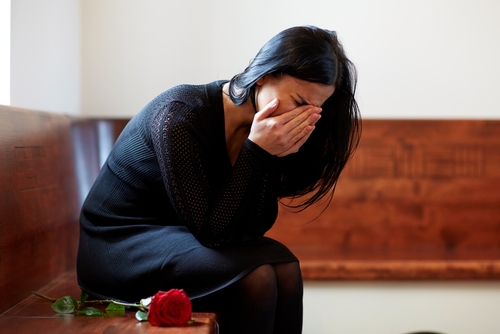By: Design for Change Recovery
Categories:
Is It Ok To Drink In Recovery If I’m In Mourning?
You are here:Losing someone you love can be life altering. The grief, sadness, and despair that arise can feel overwhelming. For individuals in recovery, the thought might come that a drink or two would take the edge off. The truth is that taking a drink while in mourning is a dangerous idea. It could lead to the destruction of your life.
Feelings of grief can often feel overwhelming. You may be experiencing common expressions of grief. Some of them are:
- Emotional. These may include sadness, anxiety, anger, guilt, frustration, yearning, or worry.
- Physical. These may include crying, loss of appetite, sleep disturbances, aches, pains, fatigue, weakness, and headaches.
- Social. You may feel detached, behaving in different ways, or wanting to isolate.
- Spiritual. You may be questioning the loss, the purpose of life, the meaning of death, or the purpose of pain and suffering.
- Taking a drink will not relieve those symptoms. For someone in recovery, taking a drink opens the door to more misery, torment, and pain. If you are struggling with grief here are a few actions you can take to support yourself:
- Cry. Let yourself have your feelings. Someone you love is gone. It’s normal to feel sadness. Let the tears flow.
- Talk. Whether it’s to a friend, a sponsor, or a counselor, talk about your feelings. Holding your feelings in doesn’t help the healing process. Let it out.
- Write. You can write out your anger, fear, or rage. You can also write a letter to your loved one. If there were any unsettled issues, addressing them in a letter can help ease pain. If you parted on good terms you can write them a letter sharing all the things you learned from them or appreciated about them. You can make a list of great memories.
- Attend a 12 step meeting. Connecting with other people that want to drink when life gets tough can help strengthen your resolve to stay away from the drink.
- Help someone else. Help a suffering alcoholic. Buy lunch for a homeless person. Pay the bridge toll for the car behind you. Do something for someone else.
- Join a grief group. There are many groups of individuals that come together to work through their grief. They are often led by a trained therapist or counselor.
- Exercise. Exercise releases endorphins. Even just taking a walk can shift that desire to drink.
Most importantly, remember you are not alone. Reach out. Be supported. Stay sober.
Hope exists in recovery. Design For Change offers a refuge for addicts seeking recovery in a long term residential program with a full continuum of care options. Grounded in the 12 step philosophy, our programs focus on creating change by taking action. Call us today for information on how we are changing lives, one step at a time: (877) 267-3646


